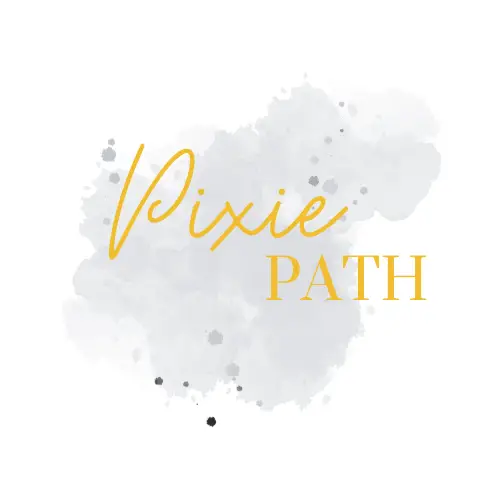As you plan your little one’s early learning path, you might wonder ‘What Age Do Kids Start Preschool’. Our article sheds light on the best time to begin and how to prepare.
Understanding Preschool Age and Readiness

The journey into formal education starts with preschool, a critical stage that lays the groundwork for future learning. Determining when your child is ready to attend involves considering their specific developmental milestones and readiness skills.
Determining the Right Age to Start Preschool
Preschool typically welcomes children between the ages of 3 and 5. Your pediatrician can provide personal advice on when your child should begin, taking into account their unique development and maturity.
- Common Start Ages:
- 3 to 4 years: Majority start here. Some may benefit from waiting a year.
- 5 years: Typical age to transition to kindergarten.
Key Factors in Assessing Preschool Readiness
Your child should be displaying certain independence and social skills that signal readiness for a preschool setting.
Social Skills: Sharing, taking turns, and participating in group activities like circle time are essential indicators.
Physical Skills: Dressing themselves, using the bathroom independently, and handling physical activity are key self-care abilities.
The Importance of Early Childhood Education
Preschool is not just about preparation for kindergarten; it’s a crucial period for academic and social development. It provides a structured learning environment that fosters essential skills and supports academic growth.
Benefits of Preschool:
- Socializing: Interacting with peers and teachers.
- Learning: Exposure to numbers, letters, and foundational academic concepts.
Pediatric Advice on Preschool Timing
Consulting with your pediatrician is always a good step to ensure your child is developmentally ready for preschool. They can evaluate if your child meets the milestones necessary for preschool.
- Key Milestones:
- Communication skills
- Emotional skills
- Basic self-help skills
Age-Appropriate Developmental Milestones
Developmental milestones can vary, but meeting them is an indication of whether a child may be ready for preschool. These milestones cover a range of abilities from communication to physical skills.
Developmental Checklist:
- Communication: Follows simple directions.
- Physical: Participates in physical activity.
Evaluating a Child’s School Readiness
Ultimately, your child’s school readiness is determined by a combination of their developmental stage and the readiness skills they exhibit in daily life.
Readiness Checklist:
- Social skills: Engages in play, and shares willingly.
- Emotional skills: Manages transitions, and separates from parents without distress.
- Self-care: Performs basic tasks like eating and dressing.
Starting preschool is a major step in your child’s education, and ensuring they are ready can set the stage for a smooth and successful experience.
Choosing the Right Preschool Program
Selecting a preschool that meets your child’s specific needs is essential for their early development. This section will guide you through the various program types, important preschool aspects, how to tailor programs to your child, and the value of thorough research and community involvement in making your decision.
Exploring Different Types of Preschool Programs
Preschools can range from Montessori and play-based environments to more academic or faith-based models, each with its unique philosophy and approach. Montessori programs, for instance, focus on self-directed learning with physical activity and hands-on learning, while play-based programs emphasize learning through play to develop language and social skills.
Considering Key Aspects of a Preschool
Key aspects such as teacher-to-student ratios, preschool staff qualifications, and curriculum play a vital role in your child’s preschool experience. For example, a lower student-to-teacher ratio may provide more personalized attention, benefiting your child’s preschool readiness. The curriculum should cover a range of developmental areas, including language skills and socializing.
Tailoring the Program to Your Child’s Needs
It’s important to consider how a preschool program aligns with your child’s temperament and learning style. Take note if the program provides sufficient physical activity, naps, and communication skills development, ensuring it suits your little one’s early childhood education needs.
The Role of Research in Preschool Selection
Conducting thorough research is a key step in the process. Visit potential schools, observe classes, and talk to teachers and parents to assess the school district and location, hours of operation, and enrollment practices to ensure the success of your preschool selection.
Identifying the Benefits of Structured Learning
Understanding the educational benefits of a structured preschool curriculum helps in recognizing the importance of organized activities in promoting early childhood education. Structured learning aids in building a foundation for future academic success.
Parental Involvement and Community
Your involvement as a parent and the preschool’s sense of community can greatly enhance your child’s experience. Schools with opportunities for parental involvement and diverse community interactions provide a rich learning environment and demonstrate the benefits of preschool beyond the classroom.
Remember, choosing a preschool is an investment in your child’s future, so consider each factor carefully to find a program that will set the stage for life-long learning and success.
Frequently Asked Questions
Navigating the start of your child’s educational journey can be filled with questions. Your concerns about age and readiness for preschool are common among parents.
What is the best age to start preschool?
The ideal time to start preschool is usually between ages 3 and 4, as children typically gain the independence needed to adjust to the new environment and its demands.
Is my 3-year-old ready for preschool?
A 3-year-old may be ready for preschool if they show emotional readiness, basic self-care skills, and the ability to participate in group activities. It’s less about age and more about developmental readiness.
At what age do children typically begin kindergarten?
Children usually begin kindergarten around 5 to 6 years of age, depending on state regulations and the child’s birthday and developmental stage.
During which month do most preschool programs commence?
Most preschool programs align with the traditional school year, starting in early autumn, around August or September.
Are there any costs associated with preschool in Colorado?
There can be various costs associated with preschool in Colorado, ranging from public preschool programs, which may be free, to private institutions that have tuition fees.
What age is considered pre-kindergarten for 3-year-olds?
Pre-kindergarten is typically for children who are 4 to 5 years old. A 3-year-old may attend preschool, which offers an earlier educational experience before pre-kindergarten.






